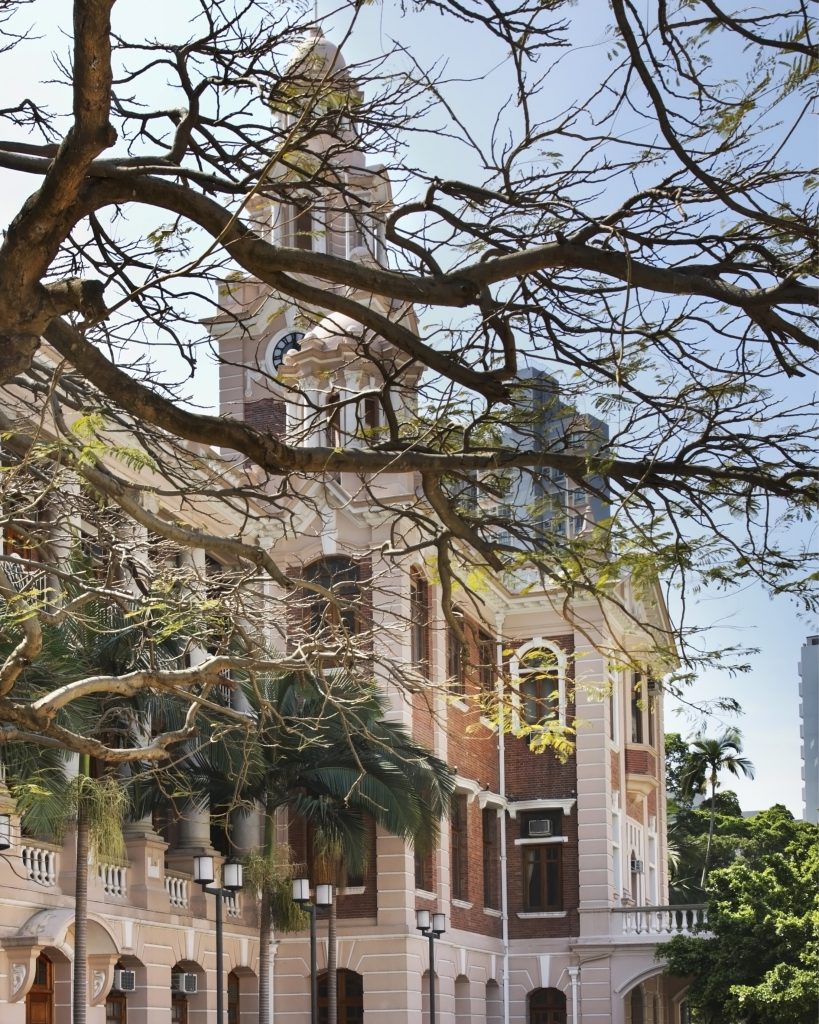HKU: Asia’s Global University
The University of Hong Kong, as an English-medium, research-led, comprehensive university (the only one in China), provides world-class campus-based education across a wide range of academic disciplines to outstanding students. Situated in a geographically and culturally unique region of greater China, the university has historically stood at the crossroads between East and West, pursuing teaching and research that aim to make an impact locally, regionally, and internationally.

HKU Business School
HKU Business School is a leading, globally influential academic institution deeply rooted in Hong Kong, fully engaged with China, and truly international. Committed to providing world-class business and economics education, it nurtures dynamic and responsible leaders, advances the frontiers of knowledge through path-breaking research, and making real differences by partnering with communities.
We have a strong international focus along with a distinct Asian perspective. The University is recognized by the international community for its high-quality talents, assets, and skills. Our campus mirrors the vibrancy and plurality of Hong Kong and the diverse, cosmopolitan nature of a modern, progressive Asian society. Our programmes and research projects are benchmarked against leading global institutions, ensuring competitiveness. We are committed to training and nurturing future leaders and talents prepared to address the significant challenges of a rapidly changing world.
We have a strong international focus along with a distinct Asian perspective. The University is recognized by the international community for its high-quality talents, assets, and skills. Our campus mirrors the vibrancy and plurality of Hong Kong and the diverse, cosmopolitan nature of a modern, progressive Asian society. Our programmes and research projects are benchmarked against leading global institutions, ensuring competitiveness. We are committed to training and nurturing future leaders and talents prepared to address the significant challenges of a rapidly changing world.

Hong Kong
- Modern, cosmopolitan city steeped in history
- Blend of East and West perspectives
- Contemporary outlook
- Efficient services
- State-of-the-art facilities
- Modern, efficient healthcare system with excellent options
- English as one of the official languages of communication
- Low tax rate
- High-performing local and international schools
- Opportunities for collaboration with national and regional partners.
- On the doorstep to China and Southeast Asia
- Easy access to mainland China, for example:
- Beijing: 3 hours (by flight)
- Shanghai: 2 hours (by flight)
- Shenzhen: 23 minutes (by high-speed rail)
- Guangzhou: 48 minutes (by high-speed rail)
- Easy access to Southeast Asian cities, with flights to:
- Bali: 4 hours 45 minutes
- Bangkok: 2 hours 50 minutes
- Kuala Lumpur: 3 hours
- Singapore: 3 hours 40 minutes
- Tokyo: 4 hours
- Yangon: 3 hours
Geography
Hong Kong covers an area of approximately 404 square miles and can be divided into three main regions:
- The Island of Hong Kong
- The Kowloon Peninsula
- The New Territories, including the outlying islands.
The Island of Hong Kong, covering approximately 35 square miles, serves as the administrative and commercial hub of the region. Most of Hong Kong’s industries are concentrated in Kowloon, which also boasts the densest population. In contrast, large areas of the New Territories remain predominantly rural and agricultural, with the emergence of nine new towns that are experiencing rapid growth. The 235 outlying islands, many of which are uninhabited and accessible only by private boat, remain relatively unspoiled. Apart from the Kowloon Peninsula, all parts of Hong Kong are characterized by hilly terrain, with rugged mountains reaching heights of nearly 1,000 meters in the New Territories and on some islands. Kowloon is connected to Hong Kong Island by three road tunnels and the Mass Transit Railway (MTR), an underground railway system. Ferries provide connections between Hong Kong, Kowloon, and the outlying islands. Hong Kong operates on standard time, which is 8 hours ahead of GMT (7 hours ahead of BST).
Climate
The Seasons: Hong Kong, situated within the tropics, undergoes seasonal weather changes:
- Spring: March–May
- Summer: June–September
- Autumn: October–December
- Winter: December/January–February
Winter can be chilly and damp; the weather warms up and often becomes misty in Spring.
Summers are characterized by intense heat, heavy rainfall, and high humidity. The most pleasant weather occurs in Autumn when it is relatively cool, sunny, and dry.
Humidity: Humidity peaks in the early morning, often exceeding 90% from February to September and occasionally reaching 99%. It typically decreases throughout the day, with significant fluctuations.
The combination of humidity exceeding 90% and temperatures around 30°C can be draining (be cautious of condensation). Using a dehumidifier can help maintain a more comfortable environment and prevent mold growth. June, July, and August are the wettest months, while December is the driest.
Typhoons: Typhoons may occur between May and November, with a higher likelihood from July to September. The primary destructive force of a typhoon is its extremely high wind speeds. The Hong Kong Observatory operates a sophisticated advance warning system that triggers whenever a typhoon approaches within 400 miles of Hong Kong. While a direct hit by a severe typhoon with hurricane-force winds is rare, some typhoons have caused significant damage.
Language
Chinese and English are both official languages, although Chinese, or Cantonese in its spoken form, is the common language. Apart from Cantonese, common dialects such as Teochew, Hakka, and Tanka are used within separate communities of Guangdong and Hong Kong Chinese. The use of Putonghua is very common in Hong Kong now, especially on the HKU campus. Some of our mainland China and international staff have mentioned that while some local Chinese speak English very well, English is not as widely spoken in Hong Kong as originally thought. For example, the use of English by taxi drivers can be a bit patchy. (To be on the safe side, ask someone to write down your destination in Chinese on a piece of paper and show it to your taxi driver.)
Useful Links:
www.asiaxpat.com
www.geoexpat.com
www.timeout.com/hong-kong
www.gov.hk/en/about/abouthk/factsheets/
www.scmp.com



